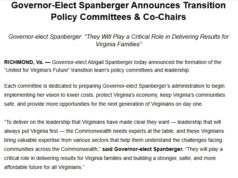
If a nuclear disaster like Fukushima can rip apart a historically cohesive society like Japan, what effect would a Fukushima-like disaster have on American society? The Asahi Shimbun reports that “ties” have unraveled in Japanese society in the wake of the Fukushima catastrophe. Thus, what was once seen as a benign source of energy for the Japanese people has turned into an issue that stands to undermine the very foundations upon which modern Japanese society is resting upon: the government, the family, social trust.
In America, we’re assured by engineers, nuclear industry experts, government bureaucrats, and political “leaders” that the dangers posed by nuclear power are miniscule and in particular, a Fukushima-like disaster can never and will never happen here in the U.S. Whether or not we experience another Fukushima here in the U.S., however, there are disturbing trends that collectively add up to serious human and environmental health consequences. For instance, there have been at least 48 U.S. nuke sites that have been found with tritium leaks, a highly toxic substance. This list could grow in the coming years.
What might be most frustrating of all is that some nuclear power suppliers and their cronies in political office are attempting to force their respective customers and constituents to foot the bill for new nuclear power plants years in advance of their actual construction. In Georgia, such a taxpayer subsidy is being proffered by Georgia Power and their political stooges. But even if the idea of paying for energy years, maybe even a decade, in advance of its actual use doesn’t bother you, the horrific history of nuclear plant delays and eventual abandonments are enough to make anyone reconsider any bid for down-payments for nuclear power plants, payments which may never be recovered by the taxpayers if the project is abandoned.
The main point, however, is that trusted individuals within many different segments of our society (e.g. business, government, academia) have promised, implicitly or explicitly, that we as Americans have nothing or very little to fear from nuclear power generation. But what if they’re wrong, what if the unthinkable happens? What would such a disaster do to the very foundations of our republic? Our republic is after all based upon the legitimacy of the governing by the governed. So what if their prognostications turn out to be wrong, what’s Plan B? Japan’s Plan B seems to be to gradually pick up the pieces and hope to regain the people’s trust again. But there are never any guarantees and maybe Western-liberal style government in Japan has taken another blow that may take generations to recover from, if it does at all.



![Saturday News: “Trump’s latest tariff TACO probably won’t make your life more affordable”; “The Epstein Email Cache: 2,300 Messages, Many of Which Mention Trump”; “[MTG] questions if Trump is still the ‘America First’ president”; “Jim Ryan tells all: ‘What did the Governor know, when did he know it?’”](https://bluevirginia.us/wp-content/uploads/2025/11/montage1115-238x178.jpg)







![Saturday News: “Trump’s latest tariff TACO probably won’t make your life more affordable”; “The Epstein Email Cache: 2,300 Messages, Many of Which Mention Trump”; “[MTG] questions if Trump is still the ‘America First’ president”; “Jim Ryan tells all: ‘What did the Governor know, when did he know it?’”](https://bluevirginia.us/wp-content/uploads/2025/11/montage1115-100x75.jpg)

